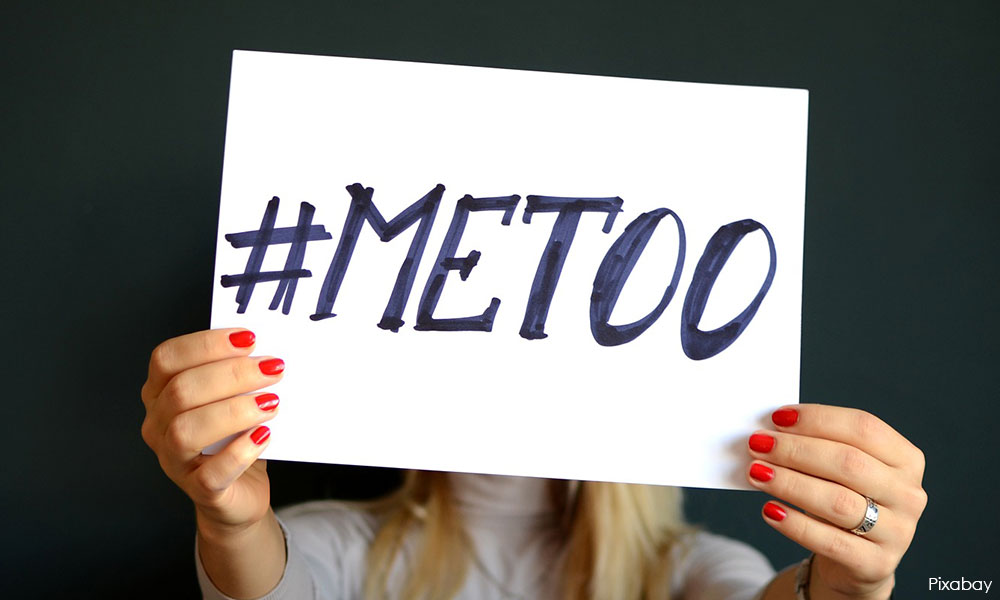ADUN SPEAKS | Putrajaya needs to enact the Sexual Harassment Act in the shortest time possible to address the rising concerns involving sexual harassment.
The US Equal Employment Opportunity Commission (EEOC), estimates that 75 percent of all workplace harassment incidents go unreported altogether.
The commission released a comprehensive study of workplace harassment in the US in 2016, which concluded that “anywhere from 25 percent to 85 percent women report having experienced sexual harassment in the workplace.”
As one journalist reported, “Shame, fear and cultural norms all allow sexual harassment to go underreported.”
The large gap may be due in part to the fact that perceptions of what constitutes sexual harassment differ among individuals and also between genders. That is, what some people might consider acceptable behaviour, others might think of as sexual harassment.
Although sexual harassment can happen to both men and women, women are more likely to become victims, especially in places or countries where patriarchy is deeply ingrained as a cultural value, and the men see nothing wrong in sexually harassing women.
In such places, women are sometimes objectified and become the subject of crude jokes, yet women who do not laugh along are accused of being uptight.
As the burden of proof lies with the victim, the aggrieved party usually has insufficient evidence to warrant disciplinary action against the perpetrator. Nevertheless, in 2016, the Federal Court established the tort of sexual harassment, allowing victims to claim for civil remedies against the perpetrator.

The #MeToo global movement across social media platforms has prompted many victims to come forward with their stories.
In Malaysia, two journalists claimed they were harassed by politicians, but the National Union of Journalists victim-blaming response “underscores Malaysia’s poor understanding of sexual assault.”
Last month, house officers complained of sexual advances from their department heads, and the Health Ministry set up a panel to probe these claims.
At the moment, there is no comprehensive legislation to which victims may seek legal recourse.
The only references to sexual harassment can be found as stated below:
- Section 509 of the Malaysia Penal Code Act 574 provides that:
- In 2012, Section 2 of the Employment Act 1955 (A1419) was amended to include the definition of “sexual harassment” as:
The Employment Act 1955 does not specify the criminal liability of the perpetrator and is only applicable to employees earning up to RM2,000 per month; or is employed under a contract of service for manual labour irrespective of his monthly wages.
Other sections of the Act that may be used in sexual harassment cases are Section 14 and Section 81F where it is obligatory for employers to investigate any complaints of sexual harassment and submit a report to the Director General, failing which, the employer would have committed an offence which, on conviction, be liable to a fine “not exceeding ten thousand ringgit.”
- Article 4 of the Code Of Practice On The Prevention And Eradication Of Sexual Harassment In The Workplace prepared by the Human Resources Ministry, defines sexual harassment as:
This “Code of Practice” is only a guideline and employers are not required to enforce them.
Specific laws prohibiting sexual harassment can be found in several jurisdictions, namely:
- United States of America (Title VII of the Civil Rights Act of 1964)
- United Kingdom (Sex Discrimination Act 1975)
- Australia (Sex Discrimination Act 1984)
- Philippines (the Anti-Sexual Harassment Act 1995)
- Costa Rica (Law on Sexual Harassment in Employment and Education, 1995)
- Israel (Prevention of Sexual Harassment Law, 1998)
- Israel (Sexual Harassment Law 1998)
- Luxembourg (Law of 25 May 2000 on Protection against Workplace Sexual Harassment
- France (Labour Code, Criminal Code)
- Russia (Criminal Code)
- Belize (Protection against Sexual Harassment Act 2000)
- Pakistan (Protection Against Harassment of Women at the Workplace Act 2010)
- India (the Sexual Harassment of Women at Workplace 2013)
- Singapore (Protection from Harassment Act 2014)
The EEOC in the US receives and investigates complaints of sexual harassment which enables the complainant to pursue the matter to court.
Sexual harassment has adverse effects on the victim’s performance at work and in school. Sexual harassment can also cause low productivity which in turn leads to losses, in addition to causing mental and emotional distress to the victim.
In order for Malaysia to progress in this aspect, there should be changes in the society’s mindset. Firstly, gender equality is a must and men need to know explicitly that a woman’s consent is needed when they intend to make sexual advances. Keeping quiet is not consent and wearing skirts or shorts is not consent.
In a country that generally accepts child marriages and marital rape, there should be more awareness on gender sensitisation to curb sexual abuse. Malaysia will certainly benefit from having a Sexual Harassment Act based on its own unique cultural and social background.
JASON ONG is the assemblyperson for Kebun Bunga.
The views expressed here are those of the author/contributor and do not necessarily represent the views of Malaysiakini.





